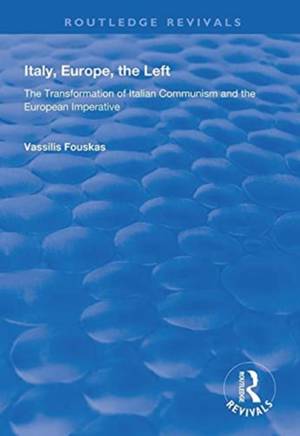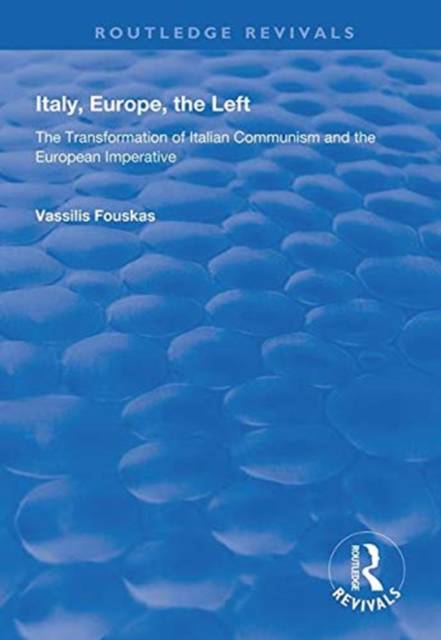
En raison d'une grêve chez bpost, votre commande pourrait être retardée. Vous avez besoin d’un livre rapidement ? Nos magasins vous accueillent à bras ouverts !
- Retrait gratuit dans votre magasin Club
- 7.000.000 titres dans notre catalogue
- Payer en toute sécurité
- Toujours un magasin près de chez vous
En raison de la grêve chez bpost, votre commande pourrait être retardée. Vous avez besoin d’un livre rapidement ? Nos magasins vous accueillent à bras ouverts !
- Retrait gratuit dans votre magasin Club
- 7.000.0000 titres dans notre catalogue
- Payer en toute sécurité
- Toujours un magasin près de chez vous
Italy, Europe, the Left
The Transformation of Italian Communism and the European Imperative
Vassilis Fouskas
148,95 €
+ 297 points
Format
Description
Published in 1998. Was the Italian Communist Party (PCI) a typical Social Democratic party in tune with the programmatic principles of the Second International? What is the appropriate context within which the strategies of 'historic compromise' and Eurocommunism in the 1970s can be analyzed and understood? In what form and to what extent has the process of European integration and the crisis of Keynesianism contributed to the transformation of the party in 1989-91? What caused the collapse of the ruling political class of the First Italian Republic? Why did the transformed PCI, the PDS (Democratic Party of the Left), fail to lead the transition to the Second Italian Republic between 1992 and 1996? Is there any link between the party's historical factions and the current divisions in the Italian Left? Is it possible to theorize and speculate upon these divisions? Italy, Europe, the Left seeks to answer these questions, debating conventional views and examining the extent to which the end of the Cold War has contributed to a redefinition of the Left's identity in Italy and Europe. The exemplary methodological framework and the wider European perspective adopted throughout, make the book an indispensable reading in the field of Italian and European politics.
Spécifications
Parties prenantes
- Auteur(s) :
- Editeur:
Contenu
- Nombre de pages :
- 253
- Langue:
- Anglais
- Collection :
Caractéristiques
- EAN:
- 9781138323384
- Date de parution :
- 18-09-18
- Format:
- Livre relié
- Format numérique:
- Genaaid
- Dimensions :
- 152 mm x 219 mm
- Poids :
- 453 g

Les avis
Nous publions uniquement les avis qui respectent les conditions requises. Consultez nos conditions pour les avis.






